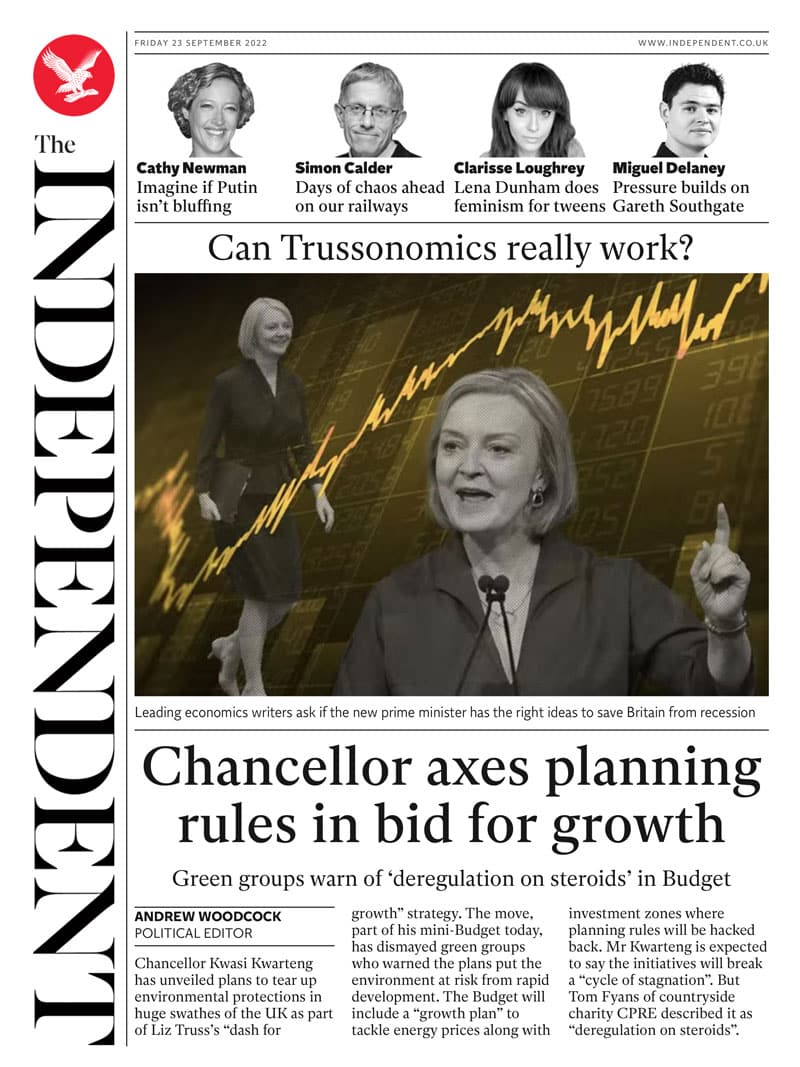Publishers have followed every announcement and reaction from markets, commentators and voters on behalf of their readers wherever they access the content, and have applied the wider political and economic context to their everyday lives
News brands have used their front pages to instantly communicate the unprecedented nature of the changes the Chancellor Kwasi Kwarteng planned to make and the consequences these would have for businesses and readers.
Some news brands have employed eye-watering currency charts and opinion polls, some used humour to make a similar point, while others have focused on Downing Street’s insistence their plans – as in the mini-budget – will work.
Explaining the issues
With the economics behind the crisis confusing for many, news brands have also sought to demystify the complex issues behind the headlines through handy explainers. Independent TV looked into what exactly inflation is and why it has suddenly risen so much over the past few months.
Metro and the i‘sTwitter threads have gone into more depth into what the pound’s tumultuous ride on the exchange markets has meant for the economy and how the prime minister responded to criticism from listeners on local radio breakfast shows.
Meanwhile, Instagram infographics from the Guardian and the Express have broken down exactly what the current economic problems will mean for readers’ day-to-day lives and how interest rates have risen sharply compared to the previous decade.
Insight and analysis
Podcasts’ space for nuanced and detailed discussion lends itself to giving listeners in-depth insight and analysis of the unfolding situation. ‘The Leader’ from the Evening Standard explored exactly what the chancellor announced and to what extent his plans could work.
Meanwhile, The Times’ ‘Stories of our times’ podcast delved deeper into Kwarteng himself, the U-turn on scrapping the 45p tax rate and how the Conservatives responded to his policies at the party conference.
View from the other side
As Downing Street battled on to defend its mini-budget, the Labour Party set out its stall for government as opinion polls reflect soaring public support. The Mirror’s Kevin Maguire and Dan Bloom used TikTok to give their thoughts on leader Keir Starmer’s speech at the Labour conference.
Tackling the wider stories
However, the government’s economic crisis and the wider issues around the cost of living do not stop at politics. Using Instagram Stories, The Telegraph asked users about their mental health in relation to the financial worries they might be facing, with true or false questions helping them to think about how stress might be taking a toll on their bodies.
Finally, everyone loves a good money-saving idea! The Sun provided readers with the best ways to make the pennies go further this winter with quick tips with its Instagram Stories.















